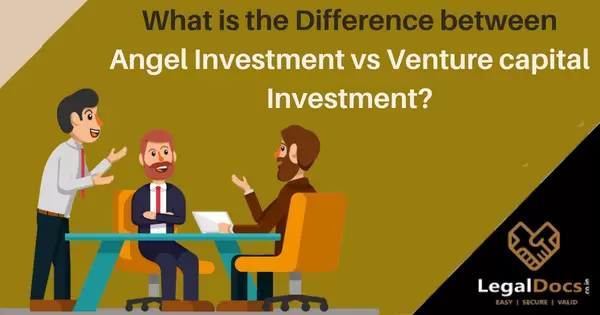Angel Investment vs Venture capital Investment
Investment is an asset or item acquires with the goal of generating income or appreciation. Attaching a more economic value to the term, investment will mean a purchase that may not be consumed in a day but is used to create future wealth. In finance, an investment is a monetary asset that is purchased with the seed thought that it would provide income in the future. The term investment may cater to any mechanism used for generating income and so it comes in different shapes and sizes. If one is seeking to introduce a new investment, there are two options; angel investment and venture capital investment.
Both these options plummeted at the time of the Great Recession of 2008. This was mainly attributed to the dire state of the economy of the United States. However, since 2010, both; angel investments and venture capital are again showing positive economic reactions. This is because, as an entrepreneur, one does not have to worry about the Initial Public Offering (IPOs)
Angel Investment:
The term 'angel' was first used by the University of New Hampshire when the wealthy individual gave money to propel theatrical productions. In simple words, angel investor puts his own finance into the growth of a small business at an early stage. Angel investors who seed startups have chances of failing and losing upon their investments completely. The capital angel investors are one time investors that aim to help business progress or provide an ongoing injection of money to provide support. However, the internal rate of return in case of a successful investment portfolio ranges from 20\% to 30\%. This may look good for some investors, but for entrepreneurs, it is too expensive. Therefore, this form of investment is preferred only when other financial sources are unavailable. Also known as informal investors, these affluent individuals may do so in exchange for ownership of equity or convertible debt.
Venture Capital:
Venture capital refers to the financing investors such that they provide startup companies and small business capital funds with the belief of having long-term growth potential. It may or may not be in monetary form. In monetary form, it may be provided by well-off investors, investment banks, and any other financial institutions. However, it may also be in non-monetary forms, such as; technical or managerial expertise. This kind of capital funding is gaining popularity as a source for raising capital, especially if there is lack of access to capital markets, bank loans, or other debt instruments. However, the main drawback of this is that the investors get a say in the company's decision-making process.
Points of differentiation:
When it comes to financing a business venture, especially a start-up or emerging businesses, many people equate angel investments with venture capital. Here, they make a mistake! While both are popular means of funding in such businesses, both have significant differences. The table below shows the basic points of difference between angel investment and venture capital based on the key features:
S.No. | Points of difference | Angel Investment | Venture Capital |
1 | Who they invest in | Early-stage business | May give to startups only if they are promising and have high growth potential. |
2 | Involvement | Investors have equity, not a seat on board. | Investment means more people coming in to discuss the know-how of the business. |
3 | Timescales | Decisions are quick as they are often working alone. | Decisions are evaluated with the involvement of diligence, research, and all other aspects to take a wise business decision. |
4 | Motivation | Motivation is to help the less experienced businesses develop in their sector. | Motivated to find the best businesses that will mint a lot of money. |
Venture Capitalist vs. Angel Investors
Every business is unique and so the financing scheme. While angel investors are individuals who want back promises from new businesses, venture capitalists pool money from a group of investors into a combined fund. It is because of the difference in the investment made by them, there is the difference in risk tolerance.
Some of the other differences between the two are:
Angel investors do not look for a high rate of return on their investment. They simply invest because it appeals to them personally. However, this does not mean that they invest without considering the financial analysis. Angel investors use their own money to fund a business venture. On the other hand, venture capitalists do not use their own money. They prefer to use institutional money such as large pension funds, college endowment options. For this purpose, venture capitalists are charged with the responsibility of demanding board positions affecting the company’s direction.
It is important that one chooses the investor or capitalists carefully such that chosen one fits in the business properly. Venture capitalists invest only when the start-up business is on-going and they realize that the business will be able to make it. They are a tougher audience, though they are easily available. In contrast to this, an angel investor who usually invests a relatively small amount becomes interested in the startup at an initial stage. One has to research for it to deliver the pitch.
The length of investment is also a deciding factor in choosing the type of business investment. While angel investors tend to invest for a period of two to five years, venture capitalists stay invested for long term i.e., 10 years.
There is no hard and fast rule to dictate the angel and venture investment. It will depend upon a combination of factors. One such factor is speculation. Different from an investment, speculation involves an attempt to capitalize market inefficiencies for short-term profit. The main difference here is the amount of risk that is undertaken in the trade. Legal guidance may be sorted to determine the source of funding best for business.
 Knowledge Center
Knowledge Center


























LEAVE A REPLY: